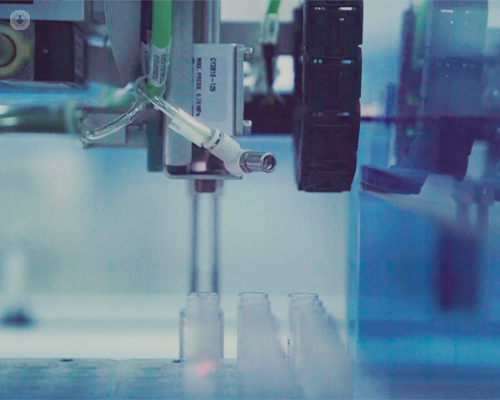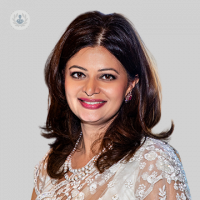Egg freezing through vitrification: Revolutionising fertility preservation
Written by:Oocyte cryopreservation, commonly known as egg freezing, has emerged as a ground-breaking technique in reproductive medicine. The process involves the extraction, freezing, and storage of a woman's mature eggs, preserving them for potential future use.
Vitrification, a rapid cooling method, has revolutionised the field, offering remarkable advantages over traditional slow-freezing methods. Senior specialist in reproductive medicine Dr Anu Chawla highlights the advantages it offers, and emphasises the importance of awareness regarding egg freezing in this informative article.

What is vitrification in oocyte cryopreservation?
Vitrification is a cryopreservation technique that allows for the ultra-rapid cooling of biological material, preventing the formation of ice crystals. In oocyte cryopreservation, this process involves the use of a high-concentration cryoprotectant solution to dehydrate the egg, followed by rapid immersion in liquid nitrogen. This results in the transformation of the egg into a glass-like, amorphous solid state, preserving cellular integrity and viability.
What are the advantages of vitrification over slow-freezing?
Improved survival rates
Vitrification has significantly elevated the survival rates of thawed oocytes. The absence of ice crystal formation, a common risk in slow-freezing, prevents damage to the cellular structure. As a result, vitrified eggs have shown remarkable resilience upon thawing, with survival rates surpassing 90 per cent.
Enhanced fertilisation rates
Vitrified eggs have demonstrated superior fertilisation rates when compared to their slow-frozen counterparts. The absence of ice-induced damage allows for a higher percentage of eggs to be successfully fertilised during in vitro fertilisation (IVF) procedures.
Increased pregnancy rates
Studies have consistently shown that vitrified oocytes yield higher pregnancy rates compared to slow-frozen oocytes. This can be attributed to the improved viability and integrity of vitrified eggs, resulting in higher quality embryos during subsequent IVF cycles.
Reduced risk of chromosomal abnormalities
Vitrification minimises the risk of chromosomal abnormalities in thawed eggs. The absence of ice crystal formation preserves the genetic integrity of the oocyte, leading to a lower incidence of chromosomal anomalies in resulting embryos.
Flexibility and convenience
Vitrified eggs offer women the flexibility to defer childbearing without compromising their reproductive potential. This is particularly beneficial for those facing medical treatments that may compromise fertility, as well as women pursuing educational or career aspirations.
Why is it important to create awareness of vitrification?
Despite the remarkable advantages of vitrification in oocyte cryopreservation, awareness regarding this technique remains limited. Several key factors contribute to this gap in knowledge.
Societal stigmas
Cultural norms and societal stigmas surrounding fertility preservation can discourage open discussions about egg freezing. Addressing these taboos through education and advocacy is crucial in normalising the concept.
Limited access
Accessibility to reputable fertility clinics offering vitrification services may be restricted in certain regions. Initiatives to expand access to this technology, particularly in underserved areas, are paramount.
Lack of information
Many women are unaware of the potential benefits and advancements in oocyte cryopreservation. Educational campaigns, both within healthcare systems and the broader community, are essential in disseminating accurate information.
What does vitrification offer for the future of fertility medicine?
Vitrification in oocyte cryopreservation represents a monumental advancement in reproductive medicine, offering women the opportunity to preserve their fertility for the future. The advantages of vitrification over slow-freezing are undeniable, with improved survival rates, enhanced fertilisation rates, and increased pregnancy rates.
However, creating awareness about this technique is essential in ensuring that women are empowered with the knowledge and options to make informed decisions about their reproductive health. Through education, advocacy, and improved accessibility, we can pave the way for a future where every woman has the opportunity to exercise control over her fertility and family planning.
If you’re considering egg freezing through vitrification, arrange a consultation with Dr Chawla, who is highly experienced in fertility treatment, via her Top Doctors profile.


